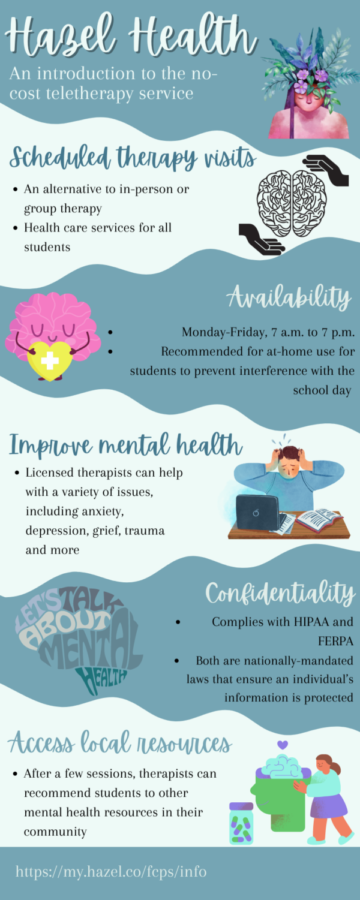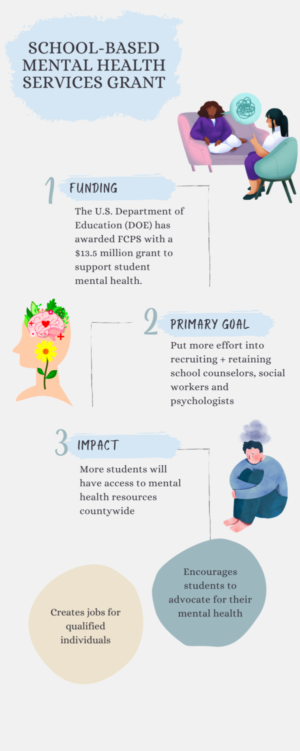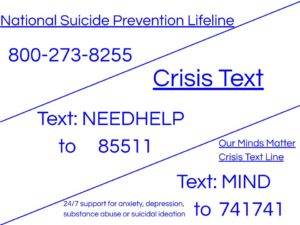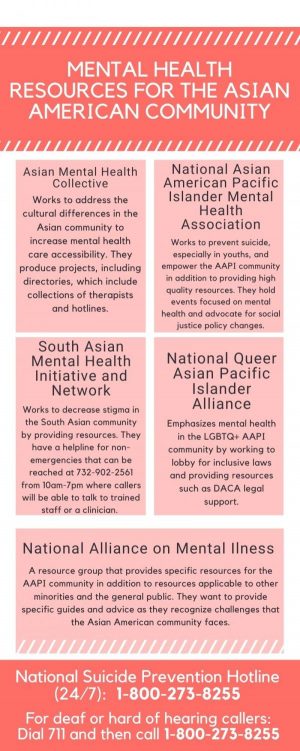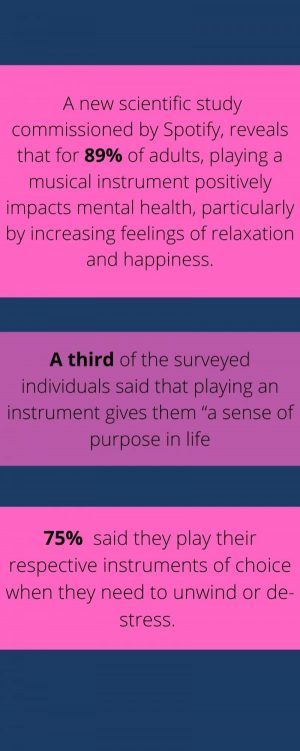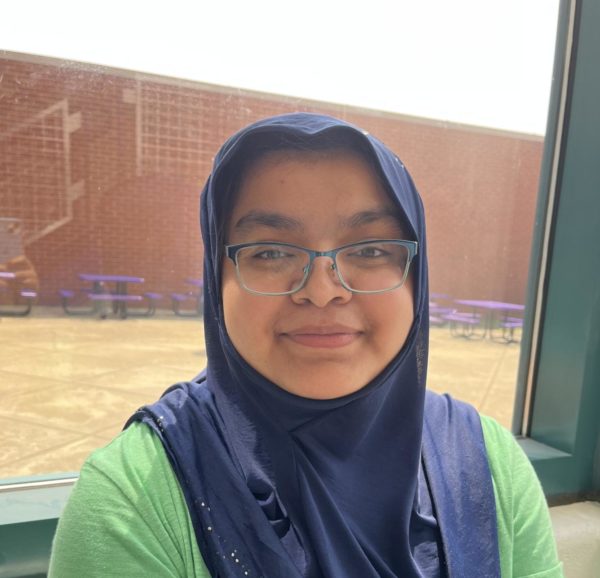Teletherapy service addresses nationwide concerns, increases accessibility of resources
Hazel Health, a free and accessible online mental health service, has been offered since April 10.
May 25, 2023
Mental health is an issue that has been at the forefront of the education system, especially in the aftermath of the coronavirus pandemic. A survey conducted by the National Library of Medicine reported 44.1% of young people meet the criteria for depression, and 48.5% for anxiety.
In an attempt to alleviate the issue and support the general well-being of students, FCPS has partnered with Hazel Health, a teletherapy service that provides no-cost quality health services for all students.
“I think the greatest challenge that parents have in accessing therapeutic services for their kids is finding available therapists,” social worker Dana Condemi said. “This process with Hazel provides that free therapy and then works with parents to access ongoing therapy if that’s what’s recommended, so it really just opens doors to get the therapy piece in place and started.”
Available since April 10, Hazel Health allows parents to schedule private and confidential virtual therapy visits for their teens within two to four days after giving parental consent. Students can then access licensed therapists from home (Monday-Friday, 7 a.m. to 7 p.m.) that aid them in coping with some of the challenges that are a part of everyday life, including stress, bullying, relationship issues, anxiety, grief and depression.
“I feel like it’s important to address the causes of stress, as well as just letting people be in a safe environment where they don’t feel the need to hide their struggles,” freshman Ananya Nanduri said.
To initiate the teletherapy sessions, a referral from a school mental health professional such as a counselor, psychologist or social worker is required, after which point students can begin their journey with Hazel in order to practice self-care and bolster their mental health.
“I really like to journal, and that helps me to get my emotions out and really put things in perspective to see that it’s not usually as big of a deal as I think it is when I’m stressing about something like an exam,” junior Remi Ladia said. “But I would also consider using the service, especially because it’s free and I think it makes it a lot more accessible for students.”
After a few visits, professionals from the teletherapy service can offer referrals to local mental health resources based on individual needs, in order to ensure individuals continue to receive quality help even if they choose to discontinue teletherapy.
Condemi also placed an emphasis on self-advocacy, urging students to seek help if they are struggling as there are mental health resources available both inside and outside of school.
“We do have some great tools that we can work with students on in terms of mindfulness skills, coping skills, such as breathing exercises, doing things to help regulate our breathing, and also to help regulate our thinking,” Condemi said. “So really just taking time to recognize that yes, this is difficult, but it’s okay. I will learn how to push through these hard times, through these uncomfortable moments. And here at school, and through Hazel, we can help students do that.”


